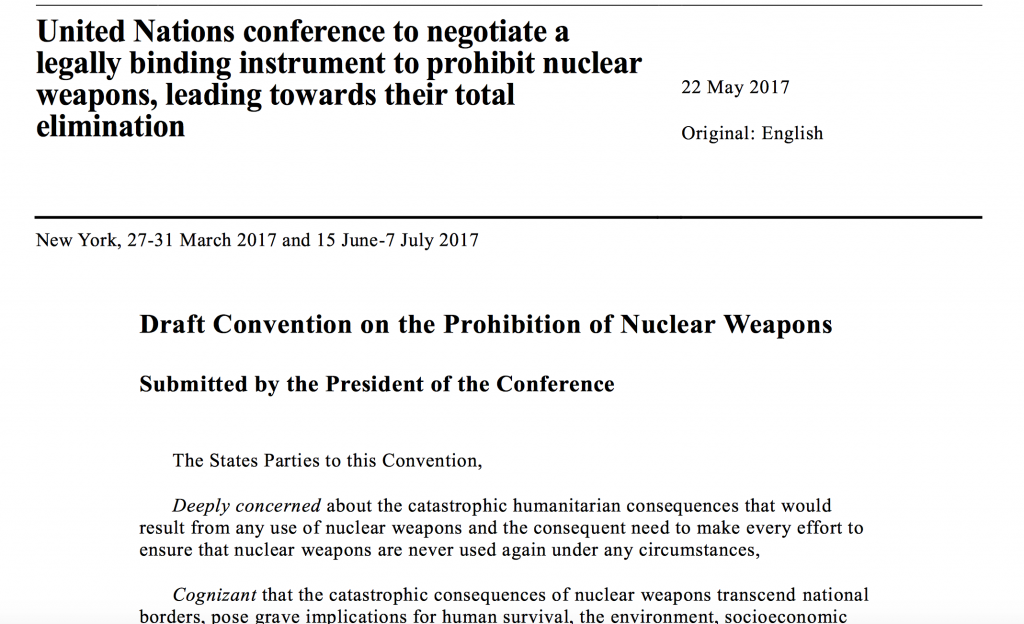The Draft Treaty to Ban Nuclear Weapons

In a momentous step to create a safer and more secure world, a draft treaty to ban nuclear weapons was released today by the United Nations. The document is seen as an essential milestone in the years-long effort to ban these indiscriminate weapons of mass destruction and an important step toward their eventual elimination.
Over 130 countries participated in the first negotiation session that took place in March of this year in New York under the auspices of the United Nations. Participants shared initial positions and goals for the treaty language, focusing on the humanitarian cost of nuclear weapons use and the threat posed to every country. Most also compared a nuclear weapons ban to previous bans on chemical and biological weapons, land mines, and cluster munitions, which have had significant impact and changed international behavior.
David Krieger, President of the Santa Barbara-based Nuclear Age Peace Foundation, commented,
“This draft treaty is a historic step on the road to a nuclear weapons-free world. It provides an excellent framework for the negotiations that will resume on June 15th. The arc of the nuclear threat is bending toward prohibition and abolition. It is time for the nuclear-armed countries and their allies to join with the active non-nuclear states in putting an end to the nuclear threat to humanity for their common benefit.”
The world now faces 21st century threats and challenges — cyber attacks, pandemic disease, climate chaos and terrorism. These threats cannot be addressed by nuclear weapons or the logic of nuclear deterrence. More ominously, the spread of nuclear weapons technology and material only increases the chances of intentional or accidental nuclear detonation by states or terrorist groups.
Beatrice Fihn, Executive Director of the International Campaign to Abolish Nuclear Weapons, said,
“Now that we have a draft, nuclear-armed and nuclear alliance states should take the opportunity to engage productively in these discussions. Failure to participate undermines any objection they might have once the document is complete. This is a test of their commitment to a world without nuclear weapons.”
Countries will have the opportunity to finalize the treaty at the second negotiation session, which will take place from June 15 through July 7 at the United Nations in New York.
The draft treaty in its entirety can be found at http://www.icanw.org/wp-content/uploads/2017/05/BanDraft.pdf.
Featured image: icanw.org


